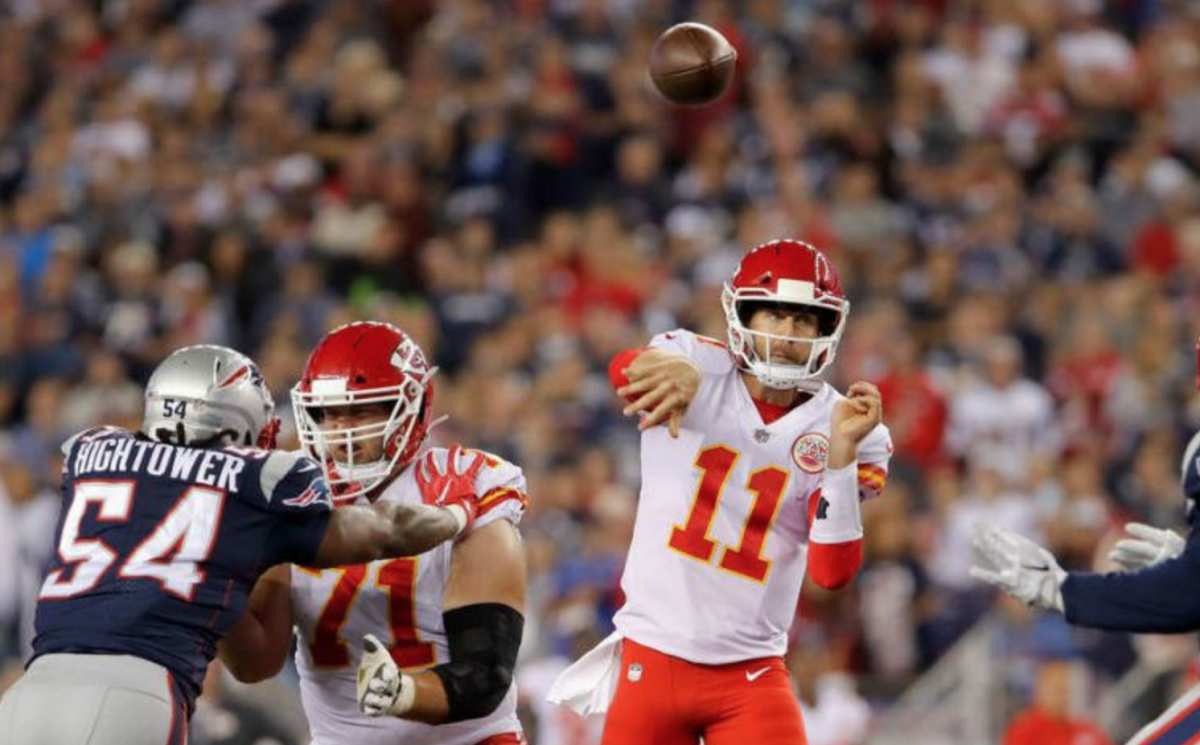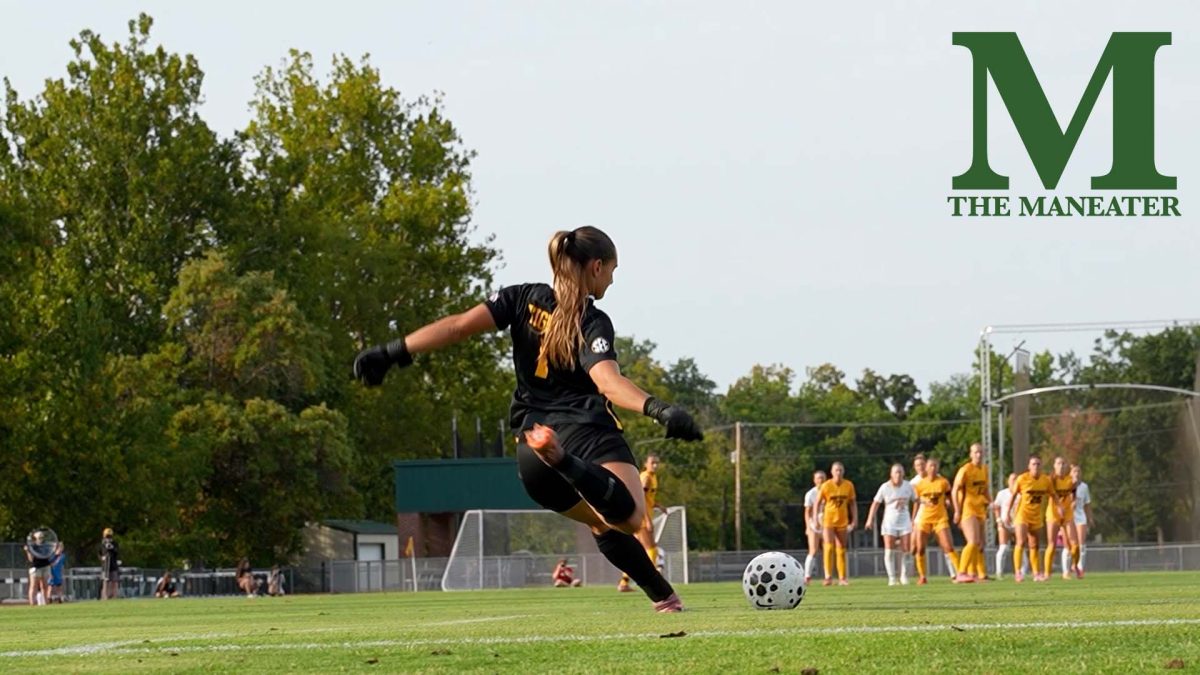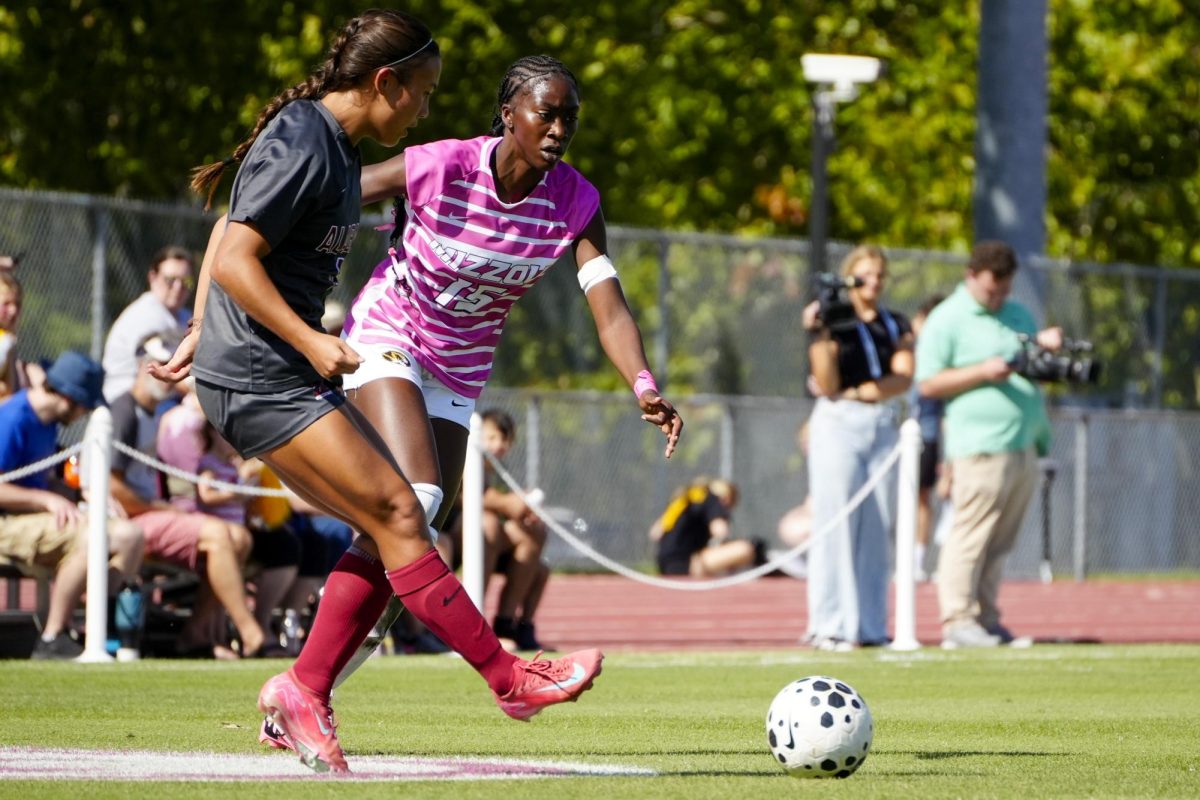Going into week six of the NFL season, things were looking up for the Chiefs.
Undefeated five weeks into the season, head coach Andy Reid had his team’s offense firing on all cylinders, beating opponents with high-octane offensive performances from rookie running back Kareem Hunt and veteran quarterback Alex Smith.
Kansas City’s week six opponent was a Steelers team it lost to in the divisional round of the playoffs a season before. A Chiefs win would have been a turning point for a franchise and fanbase which hadn’t come to expect much from its team in the way of playoff success.
Instead of beating Pittsburgh at home, the Chiefs lost by six, scoring what was at the time a season-low 13 points.
Since the loss to the Steelers, the Chiefs haven’t been able to regain the momentum they had through the first five weeks of the season. Kansas City’s lost five of its last six games with a noticeable drop off in offensive production, going from an average of 32.8 points per game to only 18 points per game and seeing poor defensive play rear its ugly head.
####The Kansas City offense
The MVP-caliber play from Smith and record-breaking production from Hunt have come to an abrupt halt in the last six games.
Hunt, who totaled 609 yards rushing through his first five games, has had the most significant individual dropoff on this Chiefs offense. After a hot start, Hunt has only rushed for 281 yards over the last six games.
Hunt’s 1,234 total yards from scrimmage to this point remains impressive, but he also hasn’t had more than 100 yards from scrimmage since Kansas City’s mid-October loss to Oakland, where he totaled 117 yards from scrimmage.
The other waning individual performance that warrants mention over this stretch is Alex Smith’s. Through the first five games of the NFL season, Smith had a 125.8 quarterback rating, completed 76.6 percent of his passes and hadn’t thrown an interception. Smith’s completion percentage has dipped to 63 percent over his last six games and he’s thrown four interceptions in his last three games.
When looking at Kansas City through its first five weeks, Hunt and Smith accounted for a combined 108 points for the Chiefs. Through its 1-5 skid, Kansas City has scored 108 points as a team. Smith’s found the endzone eight times since the week five win in Houston, but Hunt hasn’t scored since week three.
That drop in production is considerable. Hunt and Smith went from producing more than half of their team’s points in the first five weeks to scoring at a stagnant pace, leaving Kansas City’s offense considerably less dynamic.
It’s hard to blame such a drop on the offensive side of the ball on two players. But the decline in production from Smith and Hunt has made it clear that their early-season impacts were a substantial lifeblood for a fun-to-watch Kansas City offense.
####The Kansas City defense
The Chiefs’ defensive woes are most noticeable in the secondary, which — after losing starting cornerback Steven Nelson before the season opener against New England, as well as All-Pro safety Eric Berry for the season in the fourth quarter of that same game — hasn’t been able to find much of any success.
Through the bad spots, the secondary has some surprising numbers in certain areas, which shows where the problems lie.
The Chiefs actually have an opposing quarterback rating of 81.3, the fifth-best number in the league. That’s largely because the defense has an opponent completion percentage of 55.4 percent.
Those are promising numbers, but Kansas City also averages the fifth-most passing yards allowed per game in the league at 245.6 yards — they’ve only had three games this year where an opponent has thrown for under 200 yards. They also allow 12.6 yards per completion, the fifth-worst number in the league.
With that, Kansas City’s problem doesn’t lie in shutting down quarterbacks; it’s more a matter of stopping receivers once they get the ball in their hands. Look at the film below:
At the bottom of screen, Chiefs defensive back Kenneth Acker is matched up with Cowboys receiver Terrance Williams. Acker doesn’t defend Williams tightly off the snap and it leads to trouble. Williams runs a curl in and gets the ball at about the Kansas City 26-yard line.
Where things go especially wrong for Acker is when he comes out of his backpedal. He takes a poor angle on Williams, slipping in the process. So, instead of stopping Williams at the 26, he breaks free and finds his way down to the Chiefs’ 6-yard line.
It’s mistakes like this that have been costly for the Chiefs. Poor coverage, poor angles to ball carriers and a lot of miscommunication in coverage has led to turmoil when defending the pass.
Kansas City took a step in addressing its issues in the secondary last Wednesday by signing former All-Pro defensive back Darrelle Revis to a two-year contract. His deal comes with little money and a lot prove, as he’s coming off one of the worst seasons of his career.
In 2016, Revis, who was returning from wrist surgery and admitted to “having a bit of a weight problem” early on in the season, had a year of career lows, posting only one interception and five passes defended in 15 games for the Jets.
While this pass defense seems to be the problem, it becomes noticeable how holistically bad this defense is when considering that it’s given up the fourth-most rushing yards and is tied for the sixth-most rushing touchdowns allowed through 11 weeks.

A poor Kansas City run defense isn’t surprising over this stint — the Chiefs averaged 118 rush yards allowed per game through the first five weeks — but the pass rush, which is the typical bread and butter of Bob Sutton’s Kansas City defense, has also been lackluster this season. So far, Kansas City has posted only 21 sacks, the eighth-worst total in the league.
Kansas City’s in free fall right now and there’s a lot to address, but moving forward it’s clear changes to the gameplan need to be made.
For example, Hunt leads the league with 33 broken tackles and is averaging 2.81 yards after contact, which is 10th-best in the NFL. It’s clear he’s capable of putting up his initial numbers, especially when he gets into the open field, but he needs help getting through the line of scrimmage and making an adjustment in blocking schemes is something that would likely benefit Hunt moving forward.
That’s just one example, but the big thing to preach moving forward is innovation — with blocking schemes, offensive play designs and defensive coverages. If this Kansas City team can find the innovation it had in its offense during the first five weeks and apply it moving forward, it has a chance to salvage what’s left of this season.
_Edited by Eli Lederman | [email protected]_








